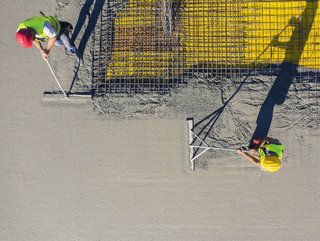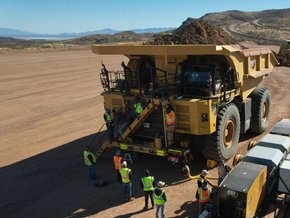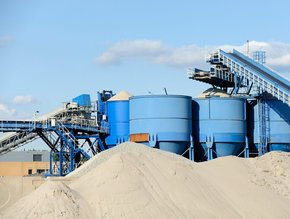Imperial College London to develop net zero cement tech

Awarded US$1.3m from the Carbon Capture, Usage & Storage (CCUS) Innovation 2.0 competition, Imperial College London (ICL) will begin research into the development of net zero cement additive technology.
Led by Christ Cheeseman, Professor of the Department of Civil and Environmental Engineering at Imperial College London (ICL), the research aims to tackle one of the construction industry’s most pressing business challenges - making concrete a more sustainable building material.
“The carbon footprint of cement is currently huge, so combining the production of a cement replacement material with carbon capture is a really innovative approach that has massive potential to decarbonise cement, concrete and therefore construction,” said Professor Cheeseman.
Concrete - the second most consumed resource
Being the second most consumed resource after water, concrete is used in a variety of projects in commercial, industrial and domestic settings. Currently, the binding ingredient in concrete is Portland cement, which accounts for 8% of global CO2 emissions. As such, developing a more sustainable alternative will be crucial to meeting net zero sustainability targets not only for construction but for industries at large.
What can be done?
The new CO2 capture process being designed by ICL researchers will offer a more sustainable building solution that is capable of capturing carbon.
By transforming magnesium silicate minerals - such as olivine - into supplementary cementitious materials, the process will simultaneously capture CO2 in a form that can be used in a range of sustainable construction products.
By breaking down olivine into its constituent components, silica can be used as a supplementary cementitious material (SCM) added to concrete to make the mixture more economical, reduce permeability, increase strength, and influence other properties. Almost chemically identical to existing SCMs, the new material can be implemented within existing building codes, and should produce concrete that is more desirable when it comes to strength and durability.
From a CO2 standpoint, the remaining magnesia can be used to permanently isolate CO2 resulting in magnesium carbonate, an extremely stable mineral for long-term carbon storage and no danger of leakage.
“Whether it's the first meal of the day or a nightcap, the great manufacturers of our country are striving to cut their carbon emissions and their energy bills - and in turn, support our efforts to boost our energy security. Our investment of over £80 million will help them to go further and faster, using the latest science, technologies, and new energy sources to cut ties with fossil fuels and futureproof their industries," commented Graham Stuart, Minister for Energy Security and Net Zero.
Lord Callanan, Minister for Energy Efficiency and Green Finance, added: “Britain has a long and proud history of pushing the boundaries in science – and our backing with over [US$102.9m] for these cutting-edge projects today will help make way for the next era of innovation. The transition away from fossil fuels presents a huge opportunity for our growing green energy sector and we will continue to make sure UK business can benefit from its full potential.”
- What Is It Like To Be A Woman In Construction?Construction Projects
- Bechtel & Westinghouse Boost Nuclear Construction in EuropeConstruction Projects
- B&W Engineering: Managing Sustainability in ConstructionSustainability & Green Building
- Technology Boosting Procurement Autonomy in ConstructionTechnology & AI






